
9-15 #LockDown : GM’s Cruise has developed its own chips for self-driving cars to be deployed by 2025; Foxconn and Vedanta Resources have signed a MoU; LG has successfully tested the wireless transmission and reception of 6G terahertz; etc.

According to Carl Jenkins, VP for Hardware Engineering of General Motors’ (GM) Cruise division, Cruise has developed its own chips for self-driving cars to be deployed by 2025, as they aim to bring down costs and scale up volume. Jenkins has said in-house chip development required investments, but this would be recouped by scaling up production of cars which use multiple chips. He declined to say how much the company was investing on the project. (Engadget, Reuters)
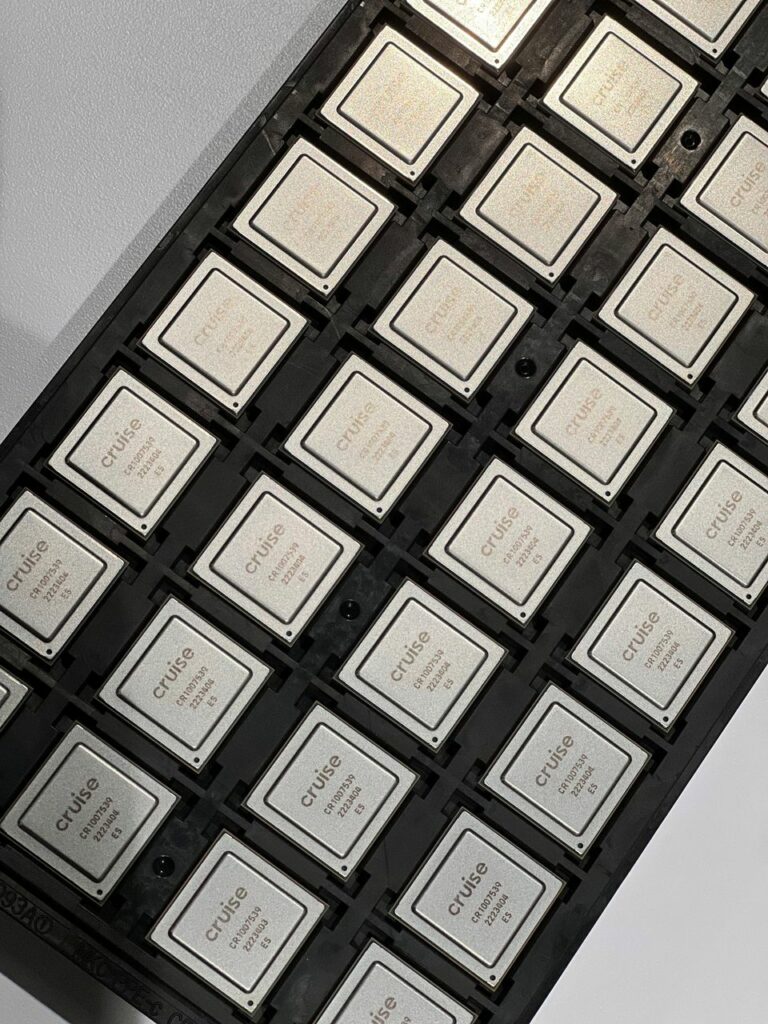
Apple aims to be the first company to use an updated version of Taiwan Semiconductor Manufacturing Co (TSMC)’s latest chipmaking technology in 2023, with plans to adopt it for some of its iPhones and Mac computers. The A17 mobile processor currently under development will be mass-produced using TSMC’s N3E chipmaking tech, expected to be available in 2H23. The A17 will be used in the premium entry in the iPhone lineup slated for release in 2023. N3E is an upgraded version of TSMC’s current 3-nanometer production tech, which is only starting to go into use in 2022. The next generation of Apple’s M3 chip for its Mac offerings is also set to use the upgraded 3nm tech. (Gizmo China, GizChina, MacRumors, Asia Nikkei)
The 5nm chip developed by Dingdao Zhixin, a chip design company under Lenovo Group, has been returned to the chip and successfully lit up, and relevant functional tests will be carried out next. It is expected to enter mass production by the end of 2022. Lenovo’s chip is specifically designed for tablet PC applications. Dingdao Zhixin is a wholly-owned subsidiary of Lenovo Group. It was established on 26 Jan 2022 with a registered capital of CNY300M.(CN Beta, 163.com, EET-China, Leifeng)
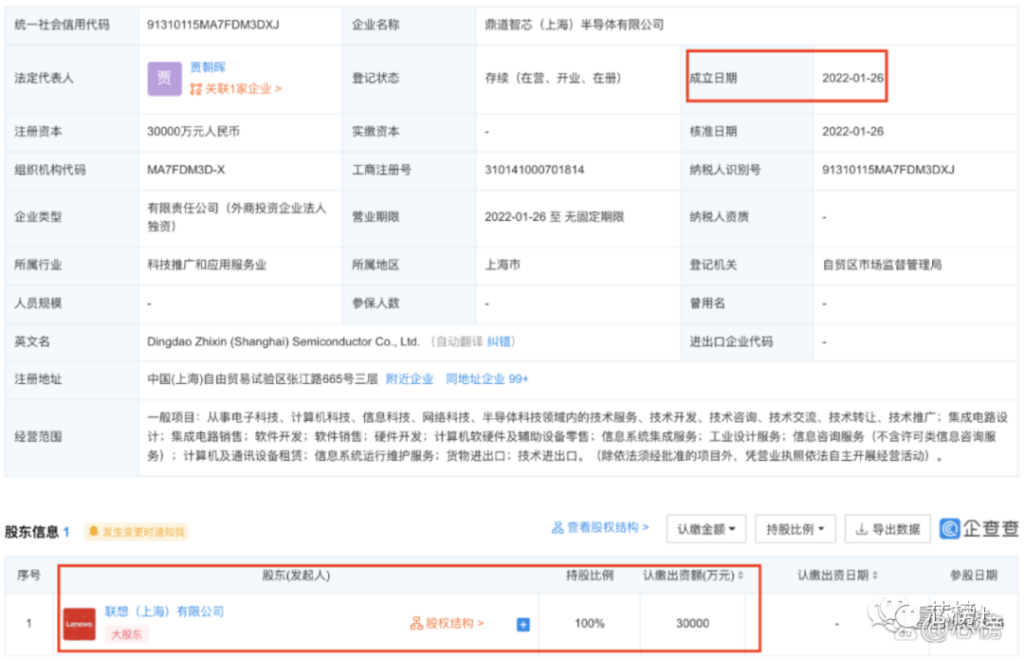
Arm has beefed up its Arm Neoverse product roadmap for processor designs that will fuel computing infrastructure across a variety of technologies into the future. The roadmap features the addition of Arm Neoverse V2, code named Demeter, for years into the future. Neoverse V2 is the latest Arm core targeted at providing leadership in per-thread performance for the cloud, hyperscale, and high-performance computing workloads, said Arm CEO Rene Haas.(CN Beta, The Register, ARM, CRN, VentureBeat)
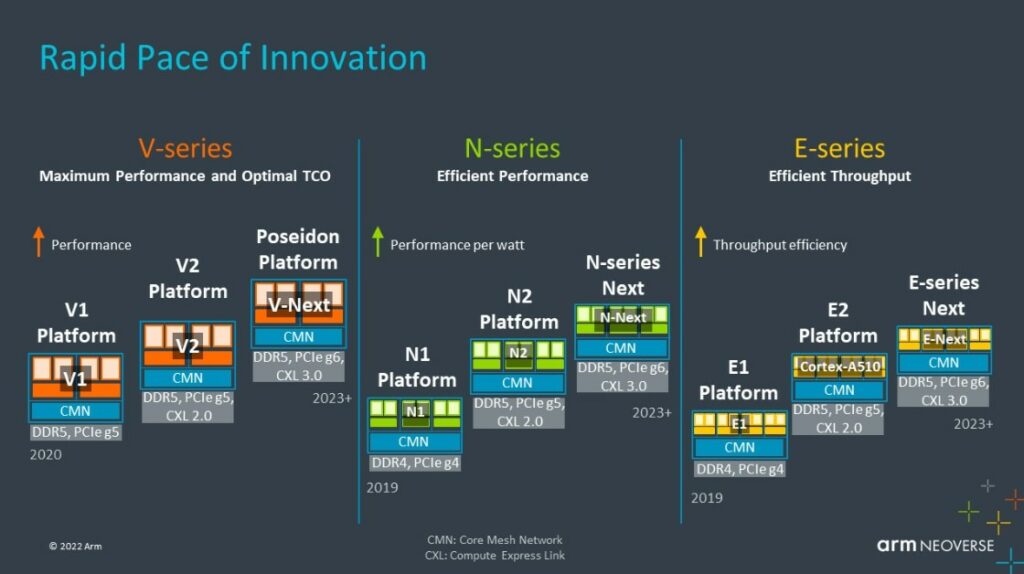
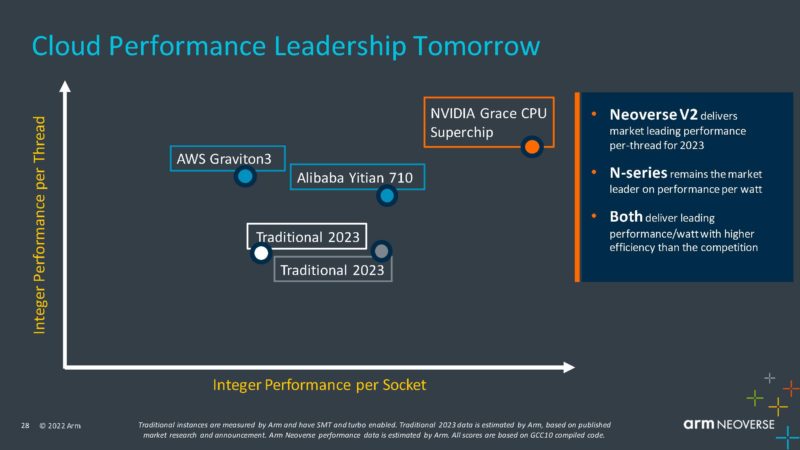
The U.S. Department of Commerce’s National Institute of Standards and Technology (NIST) has signed a cooperative research and development agreement with Google to develop and produce chips that researchers can use to develop new nanotechnology and semiconductor devices. The chips will be manufactured by SkyWater Technology at its Bloomington, Minnesota, semiconductor foundry. Google will pay the initial cost of setting up production and will subsidize the first production run. NIST, with university research partners, will design the circuitry for the chips. The circuit designs will be open source, allowing academic and small business researchers to use the chips without restriction or licensing fees. (CN Beta, NIST)
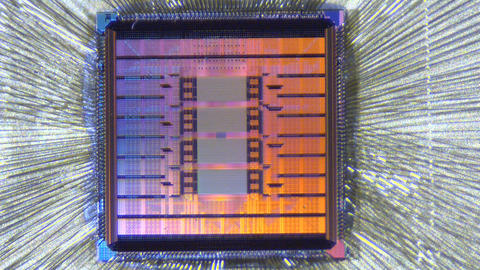

Foxconn and Vedanta Resources have signed a memorandum of understanding (MoU) with the Indian state Gujarat for the construction of semiconductor and display production plants. The agreement is valued at INR1.54 lakh crore (USD19.5B) and is marked as the largest investment project in any Indian state to date. Vedanta Resources – the largest mining company in India is covering the setup of the display and chipset manufacturing plant sites while Foxconn will serve as the technical partner.(GSM Arena, Reuters)
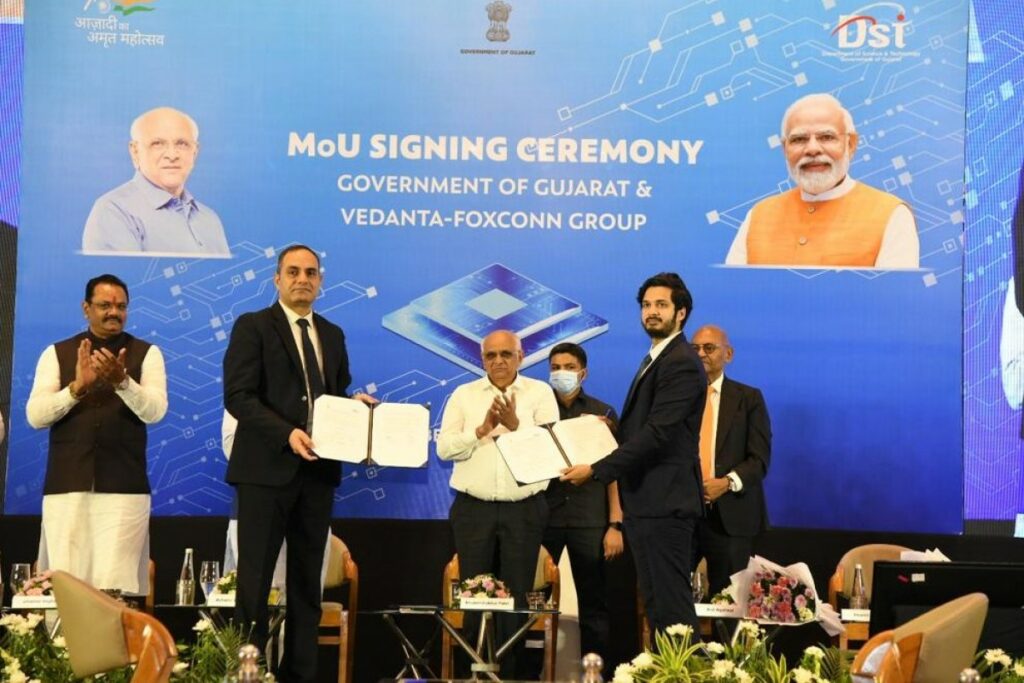
realme’s product manager Shreehari has discussed the technicalities of a vapour cooling system on smartphones, he confirmed that the team has been discussing the possibilities of introducing a foldable phone. However, no specific timeline is allotted to adding such a device to the company’s repertoire. While he has hinted that realme might not launch a foldable phone soon, the possibilities cannot be ruled out.(Gizmo China, TechRadar)
Samsung Display has trademarked the ‘Flex G’ name in South Korea. This follows the ‘S Flex’ that got trademarked at KIPRIS in 2021. The Flex S and Flex G are dual-folding phone-tablet hybrid concepts designed by Samsung Display to demonstrate other form factors achievable by foldable technology beyond the clamshell Galaxy Z Flip and book-like Galaxy Z Fold.(Android Headlines, SamMobile)
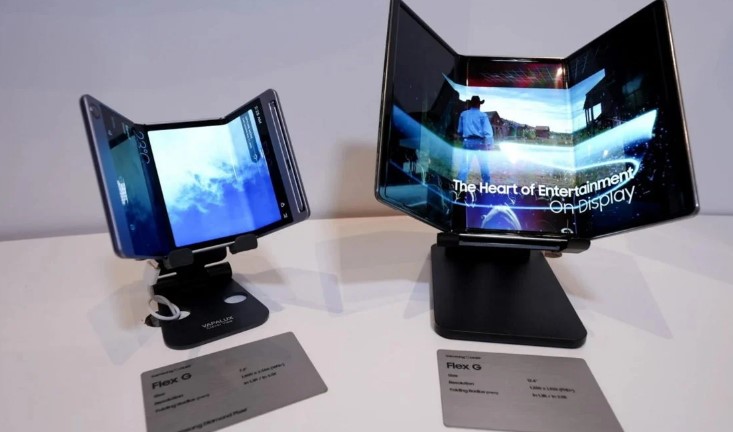
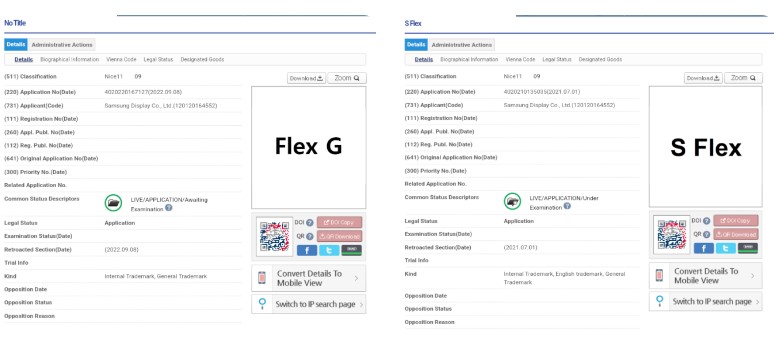

The preferential prices for large orders of PC parts are determined by domestic and foreign parts companies and PC companies on a monthly and quarterly basis. In terms of DRAM, one of the semiconductor storage chips, used for temporary data storage, 4GB DDR4 memory was about USD2.00 each in Aug 2022, down 3% from Jul. Prices fell for four consecutive months, hitting the lowest level since Nov 2020. The larger 8GB capacity also fell 3% from the previous month to around USD2.48 each. In the quarterly negotiations, the prices of various categories from Jul to Sept were about 10% lower than those from Apr to Jun. In terms of NAND memory cards used for solid-state drive (SSD) components, TLC (Tri-Level Cell) 256GB products were around USD2.80 each in Jul-Sept, down 10% from Apr-Jun 2022. (My Drivers, Nikkei)
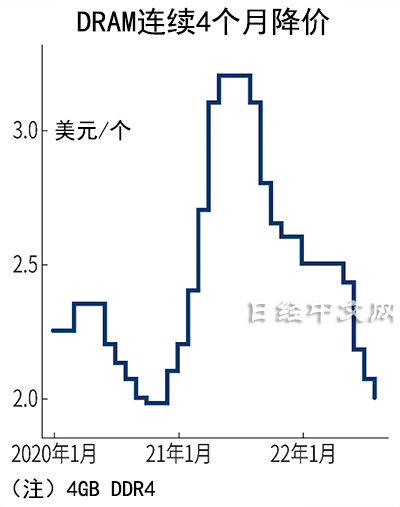

Magna International, a Canadian mobility technology company that builds sensor-based systems for cars like driver monitoring systems and advanced driver assistance systems (ADAS), is entering the micromobility market. The company invested USD77M in Yulu, an Indian shared micromobility operator, and plans to jointly launch a battery swapping service company. Earlier 2022, Magna acquired the technology, IP and assets of Optimus Ride, an autonomous shuttle company, to further beef up its ADAS offerings. The new battery swapping entity is currently registered as “Yulu Energy”.(TechCrunch, Magna, Reuters)
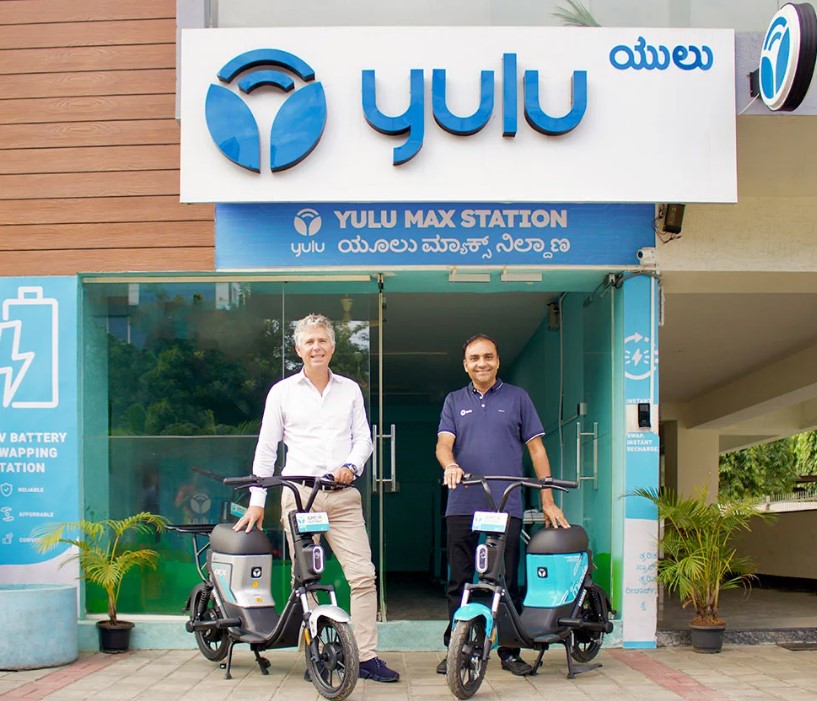
TeraWatt Infrastructure, a company that builds electric vehicle charging infrastructure for fleets, has secured over USD1B in a Series A round to build out its portfolio of commercial charging centers. The infrastructure for charging private passenger EVs is becoming easily accessible and well developed. But as more electric vehicle models for fleets begin to come to market, the commercial sector will need its own charging centers, and that is where TeraWatt comes in. (CN Beta, TechCrunch, Reuters)
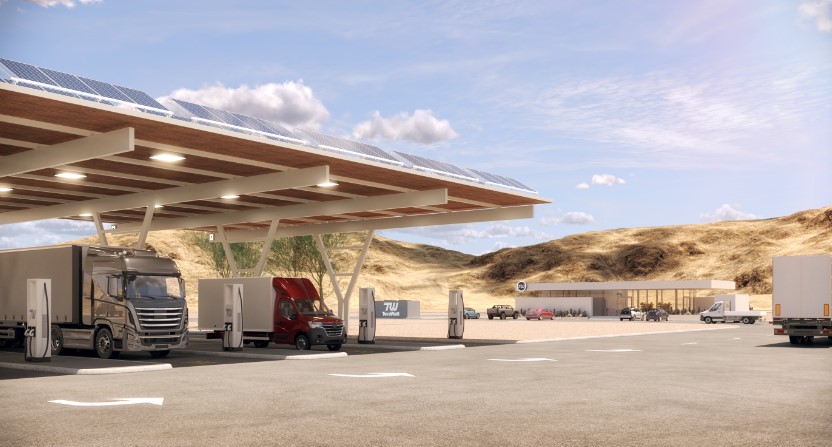

LG has successfully tested the wireless transmission and reception of 6G terahertz (THz) data at a frequency range of 155 to 175 GHz over a distance of 320 meters outdoors. The test was conducted at the Fraunhofer Heinrich Hertz Institute (HHI) in Berlin, Germany. It is an important step toward commercializing 6G THz in both indoor and outdoor urban environments, as the reference cell coverage of base stations for urban macro cells is around 250 meters outdoors. (Gizmo China, LG)
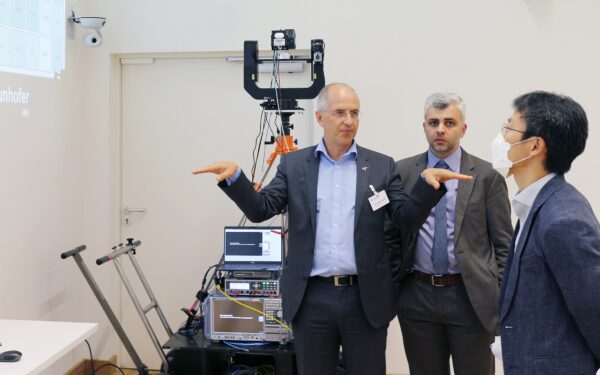

Google is reportedly planning to shift the production of its flagship Pixel smartphone to India. Google has asked manufacturers in India to submit bids for the assembly of 500K- 1M units of Pixel smartphones. This accounts for 10 to 20 percent of Pixel’s estimated total annual production. Google is also looking at Vietnam as an alternative destination of manufacturing. (GizChina, The Information)
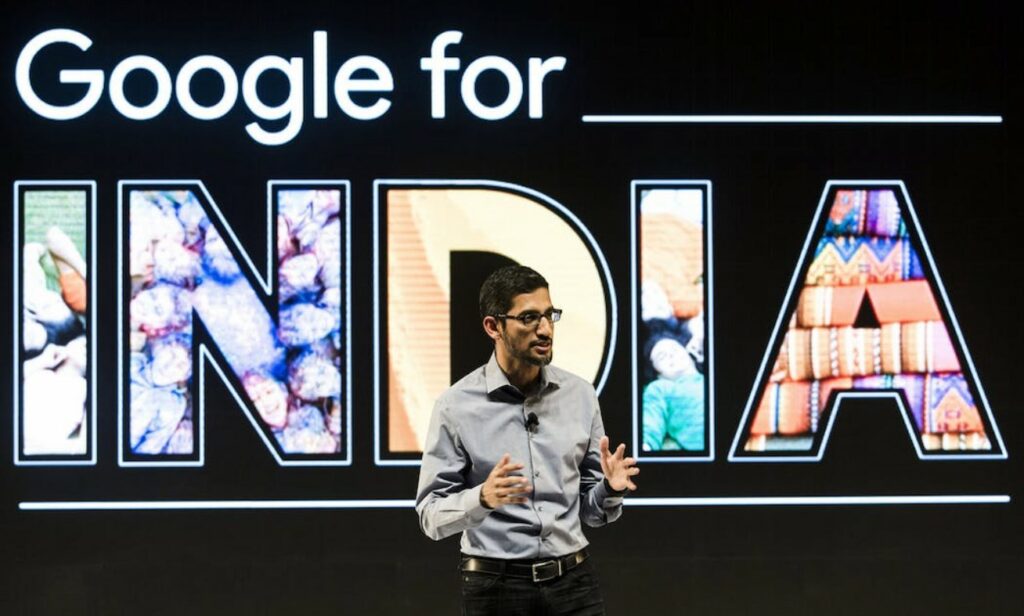
Google and Alphabet CEO Sundar Pichai has said he wants to make the company 20% more efficient and that could include headcount cuts as it reckons with a slew of economic challenges as well as years of rapid hiring. Google has confirmed that the company is slashing projects at its in-house R&D division known as Area 120. The company has informed staff of a “reduction in force” that will see the incubator halved in size, as half the teams working on new product innovations heard their projects were being canceled. Previously, there were 14 projects housed in Area 120, and this has been cut down to just 7. According to Area 120 lead Elias Roman, the division aims to sharpen its focus to only AI-first projects, as opposed to its earlier mandate to fuel product incubation across all of Google.(Android Authority, The Verge, CNBC, TechCrunch)
The European Commission has filed a record-breaking EUR4.3B antitrust fine against Google. While the judges did find some faults in the regulator’s analysis, they upheld a majority of the group’s argument. The fine was dropped from EUR4.3B to EUR4.1B. In 2018, the European Commission accused Google of participating in illegal behavior that helped the company establish the dominance of its search engine. (Android Authority, Bloomberg)
According to TF Securities analyst Ming-Chi Kuo, pre-order results of Apple iPhone 14 Pro Max, Pro, and two standard models are good, neutral, and bad, respectively (vs. iPhone 13 series). Though the iPhone 14 series product mix improves and iPhone 14 Pro Max pre-order is better vs. iPhone 13 Pro Max, the pre-order result is currently neutral to Apple. It’s unclear whether Apple will increase the Pro models shipment forecast, but the likelihood of iPhone 14 and 14 Plus (accounting for about 45% of the overall iPhone 14 shipments) cutting orders is growing. (GSM Arena, Medium, Apple Insider)
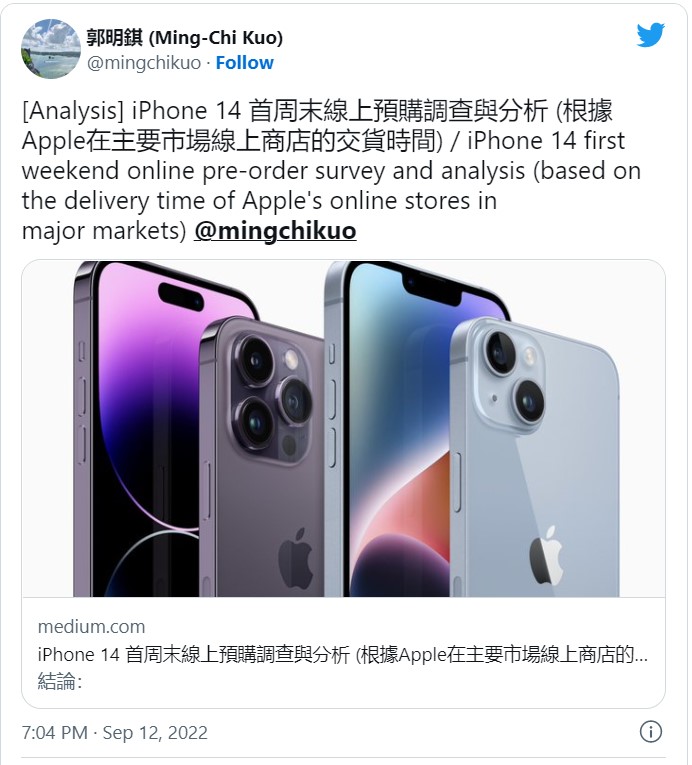
Samsung Galaxy S-series smartphone without any type of physical buttons could allegedly get launched as soon as 2025, which means that the Galaxy S25 series could be the first with such a major change. It remains to be seen how the company plans to add functionalities of the volume rocker keys and the power button. There should also be an option to forcefully shut down or restart the phone if needed. (Gizmo China, Twitter)
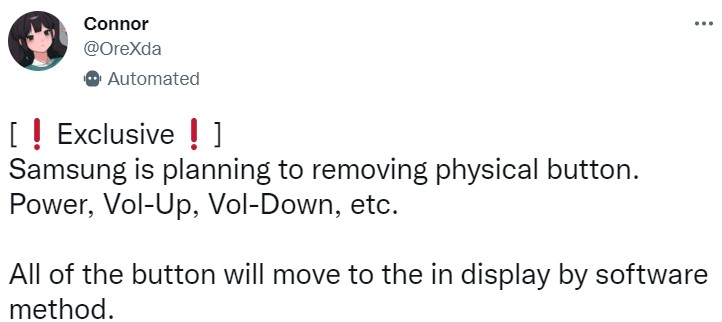
Samsung has made a commitment to achieve net zero carbon emissions for the whole company by 2050 and will spend KRW7T (USD5B) over the next 7.5 years to make that happen. The company intends to implement changes soon so that its Device eXperience (DX) Division is producing net zero carbon by 2030. Samsung’s DX division encompasses its consumer electronics businesses, including its mobile and display manufacturing operations, and was only responsible for 10% of its greenhouse gas emissions in 2021. Meanwhile, the company’s chip and components business, which is often is biggest moneymaker, was responsible for 90% of the 17.4M tons of greenhouses gases it emitted in 2021. (Engadget, Samsung, CN Beta)
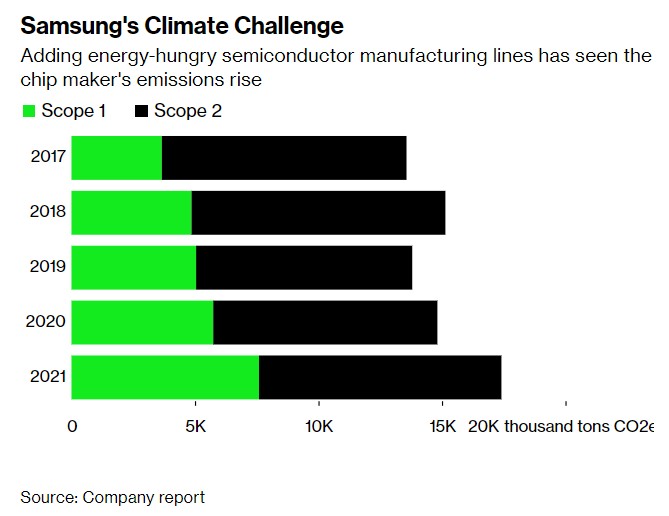

Google has reportedly canceled the next version of its Pixelbook laptop and dissolved the team responsible for building it. the project was cut as part of recent cost-cutting measures inside of Google. Members of the team have been transferred elsewhere inside the company. (GizChina, The Verge, IT Home)